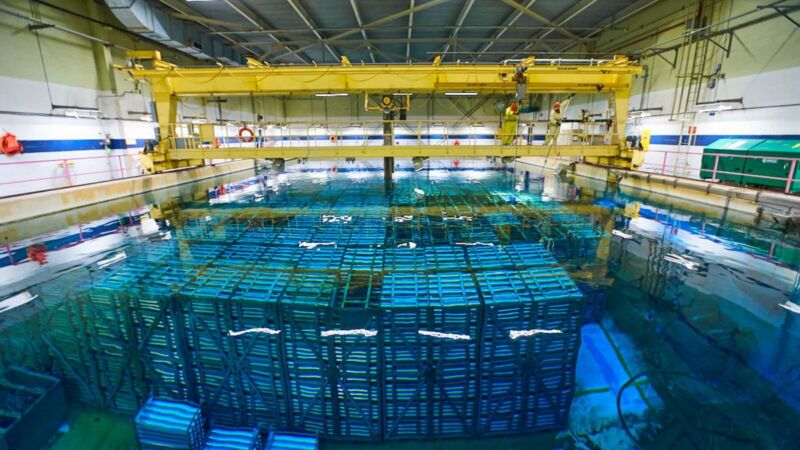Planned nuclear storage material could decay faster than expected

Enlarge / Waste in a temporary storage facility. (credit: Scott Peters, US House)
A number of countries, including the United States, have been planning for long-term storage of nuclear wastes. While many of these nations plan to keep the waste isolated from water, that's not something that can be guaranteed over the extremely long lifespans of the waste. If water reaches the radioactive isotopes, there's the chance that the isotopes could contaminate the groundwater in the area and spread well beyond the site of the storage repository.
To prevent that, plans are to have multiple layers of defense. The waste itself will be incorporated into a chemically inert, insoluble glass. And the glass itself will be placed in a stainless steel flask that will keep it from mixing with the surroundings.
Each of those materials seems to work well in tests. But now, a large team of researchers has found that, in combination, the materials aren't as robust as we'd like them to be. The problems only occur if water somehow gets into the container, but if it does, the interface between the glass and stainless steel actually accelerates chemical reactions that degrade both.
Read 10 remaining paragraphs | Comments